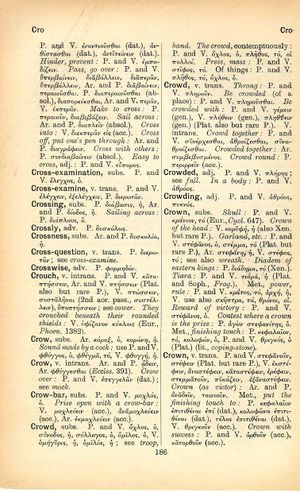crow
From LSJ
Ὥσπερ αὐτοῦ τοῦ ἡλίου μὴ ὄντος καυστικοῦ, ἀλλ' οὔσης ζωτικῆς καὶ ζωοποιοῦ θέρμης ἐν αὐτῷ καὶ ἀπλήκτου, ὁ ἀὴρ παθητικῶς δέχεται τὸ ἀπ' αὐτοῦ ϕῶς καὶ καυστικῶς· οὕτως οὖν ἁρμονίας οὔσης ἐν αὐτοῖς τινὸς καὶ ἑτέρου εἴδους ϕωνῆς ἡμεῖς παθητικῶς ἀκούομεν → Just as although the Sun itself does not cause burning but has a heat in it that is life-giving, life-engendering, and mild, the air receives light from it by being affected and burned, so also although there is a certain harmony and a different kind of voice in them, we hear it by being affected.

